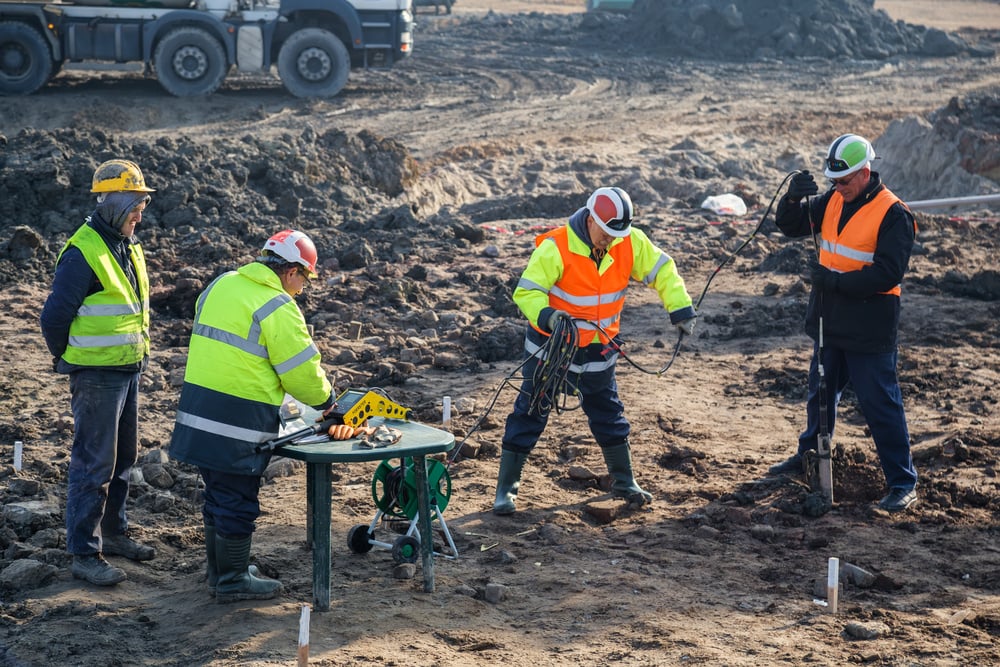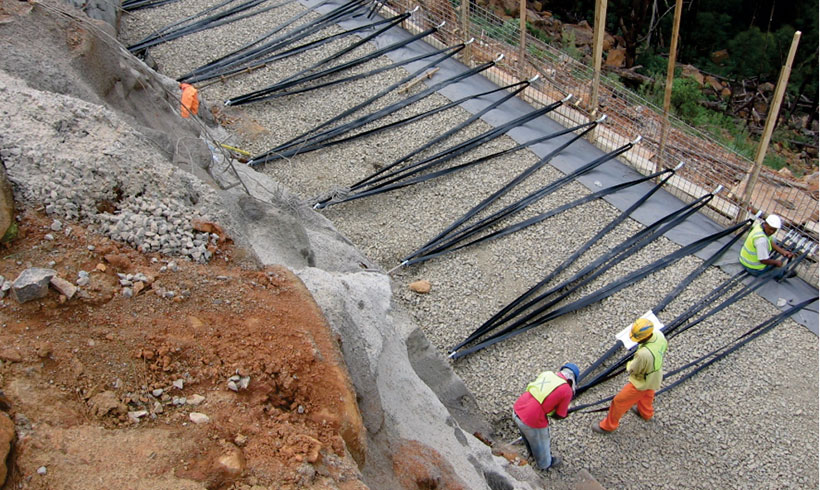Geotechnical Engineering For Construction Projects - Questions
What Does Geotechnical Engineering For Construction Projects Do?
Table of ContentsThe Ultimate Guide To Geotechnical Engineering For Construction ProjectsRumored Buzz on Geotechnical Engineering For Construction ProjectsThe 20-Second Trick For Geotechnical Engineering For Construction ProjectsThe Only Guide to Geotechnical Engineering For Construction ProjectsNot known Details About Geotechnical Engineering For Construction Projects
Consequently, throughout the examination, it is very important to drill at the called for deepness and the needed number of holes based on the referral of the Canadian Structure Style standard. Occasionally, the owner could conserve some Geotechnical Investigation cost yet wind up spending even more than the prepared for during the building and construction expense.The duties of the geotechnical consultant involve giving product testing for building and construction assistance. Geotechnical Engineering for Construction Projects. Geotechnical engineers evaluate all the field test records to make certain that building is going on according to the job spec. During building and construction, a confirmatory test for dirt compaction is done on-site to ensure that no future negotiation happens
After the concrete is poured -7 days and 28 days- examinations are performed on concrete examples gathered from the website to guarantee that the concrete poured satisfies the design standard. Asphalt core is taken after the Asphalt is laid and compacted to verify that it meets the design standard. All research laboratory test records are analysed by the Geotechnical Engineer to make certain that it fulfills the job specification.
More About Geotechnical Engineering For Construction Projects

Geotechnical engineering plays a vital function in making certain the security of construction jobs. Learn exactly how it affects design and general job success. Geotechnical design is an essential branch of civil design that concentrates on recognizing the practices of earth materials, such as soil and rock. It includes analysing subsurface problems to ensure that a building's structure or framework is secure and safe and secure.

For a trustworthy foundation and a smooth building process, depend provide the competence you require. Contact to get specialist suggestions and geotechnical solutions tailored to your following task.
Top Guidelines Of Geotechnical Engineering For Construction Projects
When starting a land growth job, understanding the ground under your feet is as critical as the frameworks you prepare to develop over it. Our Geotechnical Design group evaluate the ground, ensuring it is ideal for the proposed development while supplying you with the information required to satisfy your project goals.
Geotechnical Design considers the formation of the ground, as it is the structure blocks for all tasks. Where frameworks need to be created with respect to the ground conditions; ground problems (e.g., soft ground) may need reinforcing depending on the dimension of the designated framework. Prior to building, you need to understand about the groundwater, dirt framework, and liquefaction probability of your land.
For sites that are not linked on the neighborhood authority framework added website investigations would certainly be needed to provide technical inputs for on-site stormwater and wastewater. We have actually experienced Geotechnical Engineers based in each office, supporting your geotechnical needs across the country. Connect to us to go over just how we can support your following task.
These records are tailored to meet the particular demands of a task and include layout criteria and recommendations for the construction of a variety of manufactured frameworks. Along with providing working as a consultant services covering areas such as incline security and load-bearing capabilities for various products, these engineers carry out study and growth tasks to enhance techniques, tools, products knowledge and analysis covering whole lifecycles.
9 Easy Facts About Geotechnical Engineering For Construction Projects Shown

Rates of pay normally boost as your knowledge and abilities expand, with guidelines aiming to a graduate starting wage of between 18,000 and 28,000 per year in the UK. This rises to 26,000 to 36,000 with a few years of experience and after that reaching 40,000 to 60,000+ for senior, legal or master engineers.
Nonetheless, with the appropriate application it is feasible to grasp the career and gain access visit site to a challenging yet fulfilling and crucial career. A rock hound would need to re-train to come to be a geotechnical engineer, although there is plenty of cross-over in between both professions, which could make this simpler - Geotechnical Engineering for Construction Projects. Geologists need to have an understanding of dirts, rocks and various other products from a clinical point of view, while geotechnical engineers tale their knowledge of matters such as dirt and rock auto mechanic, geophysics and hydrology and apply them to engineering and ecological projects
When beginning, these designers will certainly tend to deal with less intricate tasks, constructing up expertise and experience all set for more difficult job later. Geotechnical engineers tend to specialise in particular areas as they grow in experience, focusing on specific facilities such as railways, roadways or water. These designers likewise collaborate with renewable resource, offshore and onshore oil and gas, nuclear power, and more.
Geotechnical Engineering For Construction Projects - Questions
The moment required to come to be a geotechnical engineer depends upon where you are based, where you research study and what level of education Recommended Site and learning you intend to acquire prior to entering the office. Are you going to check out an instruction, take an university degree or deal with in the direction of a Master's or PhD? Generally-speaking it takes 3-4 years to get to the basic demands to start a career as a geotechnical designer.
These procedures enable experts to evaluate a host of dirt auto mechanics consisting of weight, porosity, void-to-solid particle proportion, leaks in the structure, compressibility, optimum shear strength, bearing ability and deformations. If the structure calls for a deep foundation, designers Get More Information will certainly utilize a cone infiltration test to estimate the amount of skin and end bearing resistance in the subsurface.
When analyzing an incline's equilibrium of shear anxiety and shear toughness, or its ability to withstand and go through motion, rotational slides and translational slides are generally thought about. Rotational slides fall short along a bent surface, with translational slides occurring on a planar surface. A professional's objective is to establish the conditions at which a slope failure might take place.
Typically, searchings for recommend that a website's dirt should be treated to enhance its shear toughness, tightness and permeability prior to design and building and construction. When it comes time to outline structure strategies, professionals are significantly concentrated on sustainability, more particularly just how to lower a structure's carbon impact. One technique has actually been to change 20 percent of a structure's cement with fly ash, a waste item from coal fire power plants.